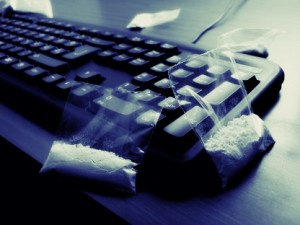 The popularity of the “Dark Web” for purchasing illegal drugs is especially worrisome because it is increasing the availability and acceptability of drugs, according to an addiction psychiatry expert.
The popularity of the “Dark Web” for purchasing illegal drugs is especially worrisome because it is increasing the availability and acceptability of drugs, according to an addiction psychiatry expert.
“After talking with people who use the Dark Web, I became very concerned that many of them have lost the appreciation that this is drug dealing, not just e-commerce,” says Karen Miotto, MD, Director of UCLA’s Addiction Psychiatry Service, who has studied the Dark Web, also known as the Deep Web or the Hidden Web. “Buying or selling heroin balloons in the park is clearly understood as an illegal activity; buying or selling drugs online may be construed as e-commerce without full appreciation that it is also illegal.”
The Dark Web refers to illegal online marketplaces that can be accessed by downloading the anonymous browser called Tor, and purchasing the digital currently bitcoin. In addition to illegal drugs, these websites sell passports, pornography and weapons.
The first and most well-known Dark Web site was Silk Road, which was shut down by the federal government in 2013.
The ease with which people can buy large quantities of drugs is creating a system with mid-level drug dealers, said Dr. Miotto, who discussed the Dark Web at the recent California Society of Addiction Medicine annual meeting.
She found people who use the Dark Web by asking students and colleagues for contacts, as well as through the website Reddit.
“We have a new drug distribution system,” Dr. Miotto said. “People can get drugs sent to them in a FedEx box right to their door with a sense of anonymity and confidentiality. There’s a sense of intrigue and excitement about getting drugs this way.”
Earlier this year, a study by Carnegie Mellon University researchers found illegal websites have sales that average $300,000 to $500,000 a day. The study found marijuana accounted for about one-quarter of sales, followed by Ecstasy and stimulants. These websites also sell significant amounts of psychedelic drugs, opioids and other prescription medications.
Dr. Miotto found that hallucinogenic compounds advertised as research chemicals are popular on Dark Web sites. “Some people believe they are performing a service by experimenting with these drugs and going online and writing about their experience,” she said.
When Silk Road was seized in October 2013, it had 13,000 drug listings. In June, the creator of Silk Road, Ross Ulbricht, was sentenced to life in prison. The government said over Silk Road’s three years in business, more than 1.5 million transactions were conducted on the site.
A number of new Dark Web sites have emerged since Silk Road was seized, including Open Bazaar, Silk Road 3.0 and Angora. “People write in testimonials about the drugs they purchase on these sites, just as you do on Amazon,” Dr. Miotto notes.
She said parents’ and physicians’ ignorance of the Dark Web makes it easier for young people to participate in the online drug marketplace. “Young people don’t always appreciate the risk they are taking in engaging in these activities,” she said. Parents can check to see if a Tor browser has been downloaded on their teen’s computer. Check packages that come to the house, and don’t allow your teen to have their own Post Office box. If your teen asks about Bitcoin, find out what he knows about it and why he’s interested in it.
“I worry about young people with disposable income and access to credit cards,” Dr. Miotto said. “Some of the most tragic cases I’ve seen are high school kids, or even younger, with a lot of discretionary income.”
Published
November 2015
 Get Support
Get Support
